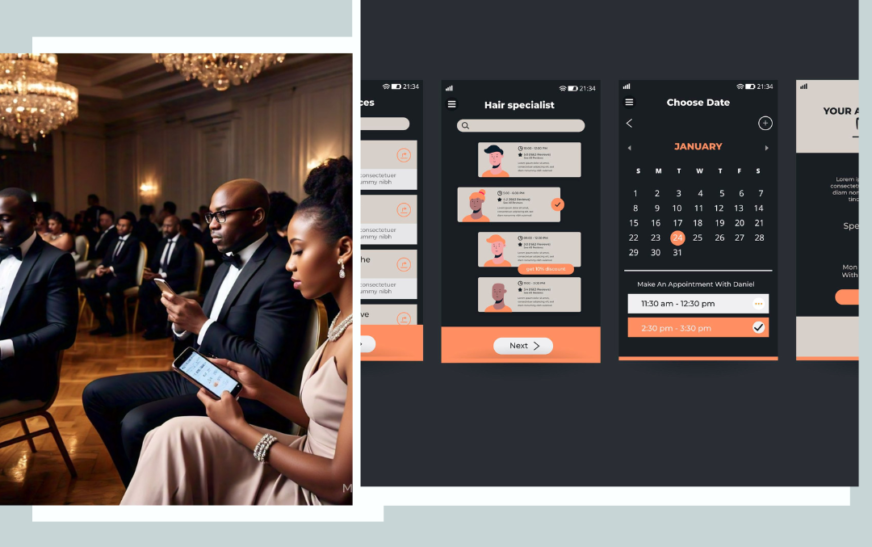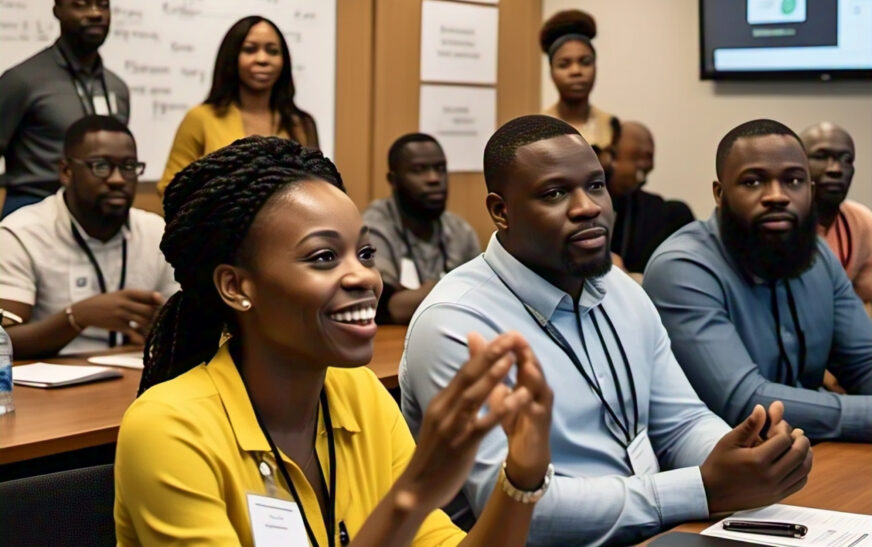Your worth as an event professional is rooted in critical problem-solving skills and abilities. To remain valuable is to consistently learn and unlearn these skills. The award-winning writer and preacher Dr. Sunday Adelaja said in his book, “If you can’t solve problems, you are not needed.”
Similarly, providing guests with unforgettable experiences and maintaining brand or personal reputation also depends largely on how well you are able to solve problems. Additionally, during events, problem-solving skills will reduce errors, enhance seamless event execution and promote attendee satisfaction.
Managing an event is a dynamic endeavour and may be full of uncertainties due to its nature. The event manager can be faced with circumstances that they are not able to control or modify. For instance, disruptions, such as weather and climatic conditions, occurrences, and disappointment from speakers due to sicknesses or other factors. Other critical problems that may be faced by the event manager could be constraints arising from budget, last-minute cancellation and sudden policy changes.
Constantly developing critical problem-solving skills is therefore pertinent for the event planner who wants to be consistently seen as competent. Developing these skills is not a sprint; rather, it is a marathon, a journey that demands patience, understanding and the will to learn. Most times it will demand swallowing up your pride and beating down your ego.
So, let’s get started by getting into the nitty-gritty of what you need to remain relevant in the marketplace and in the industry.
1. Problem-solving skills of Decision-making
Event management is not a chess game where you take the whole time to make a move; here, decisions are made on the go. Sometimes your plans on paper will not always match the reality, so your decision-making skills will be demanded.
Let me share my experience here. When a corporate retreat for 270 guests encountered a critical electrical fault that jeopardised sound and multimedia setups, I had to act swiftly. Changing venues wasn’t an option, and waiting on slow bureaucratic processes was unacceptable. I made the tough call to hire a professional power technician immediately—even though it meant unplanned expenses—because the success of the event and my reputation were at stake.
This is the key takeaway: Don’t play the blame game; take responsibility, act decisively, and prepare for the worst while remaining optimistic.
2. Problem-solving skill of Adaptability
Adaptability is one critical problem-solving skill that is not negotiable for the event professional. To an event professional, adaptability means flexibility, the ability to flow with the tide and not get drowned. It is important to note here that no event management process or procedure is cast in stone, no matter how beautiful they may be. Sudden occurrences may arise that could change the original course of the plan.
Similar to this, event planners need to allow for flexibility with clients in the event of an unforeseen circumstance that may lead them to want to modify previously agreed-upon details. To be honest, your client might not want the joker, even though you might have it. It’s about the client and not about you.
Being able to adapt also shows competence and energy. It shows that you have real empathy and experience and that you can deal with the consequences from abrupt changes. Event planners occasionally wish to demonstrate their discipline, firmness, and moral character. Some clients, however, can view this as ego, being too rigid, and unwilling to change their ways. Bring your empathetic side to the table and avoid bringing your strong or principled approach into business dealings. Particularly in face-to-face interactions, people want to feel honoured, safe, and welcomed.
To build up your adaptability skill, you don’t have to wait for the next event; rather, use your everyday experiences with friends, relatives and colleagues. Develop your emotional intelligence and learn from others in the industry by asking questions or asking them to relate their experiences.
3. Problem-solving skill of Effective Communication
Effective communication has always been a problem for some event professionals, which causes them to lose out on significant agreements and negotiations. Let me begin by stating that, while having oratory skills or being able to speak fluently can be a benefit when used appropriately, they do not guarantee effective communication.
Effective communication, in the context of an event professional, is essentially the capacity to convey a concept to a client using the appropriate language, channel, or tool that has been decided upon by all parties so that there is an anticipated response indicating whether or not the client has understood what has been spoken.
The majority of crises and/or problems are caused by misunderstandings, so the event professional needs to master effective communication as a vital problem-solving skill. For this reason, event planners need to constantly ensure that everyone is in agreement, or else the event’s execution will be compromised. During conflicts, communicating in languages and/or modes must cater to the needs of all parties to promote trust and confidence among the team.
You can develop how to communicate effectively by taking a course if there is a need to improve your writing and active listening skills. Observe people and their body language frantically, paying particular attention to non-verbal clues. Even though some people do not express their emotions verbally, their body language can convey a lot. Finally, don’t always assume your client or any member of the team understands what you have said or inferred; do your due diligence to be sure.
4. Problem-solving skills of Creativity and innovativeness
Every event professional is inherently creative, but turning that creativity into innovative solutions sets you apart. For the event professional, there must be a shift from an ordinary level of creativity to being innovative. To solve problems and create value for the clients, the event planner or manager must find ingenious ways, aside from the traditional ways, to turn the problem into a point of inspiration that keeps both the client and the guest satisfied.
Wonder why one of the world’s leading toothpaste manufacturers and brands, Colgate, has over 20 varieties of the brand? They want to continue to provide value, remain relevant in that space and not bore consumers with one variety all their lives. Similarly, your value as an event professional will decline or increase in proportion to your innovativeness, whether in solving problems or in creating experiences.
One of the surest ways to develop your creative acumen and your innovative powers is to devote time to self-development, read and learn from others, and be abreast of industry trends and standards. do a lot of thinking and research. Becoming innovative will not happen by luck; it has to be a reward of not just hard work but smart work.
5. Crisis management skill
No one is born with a crisis management skill, meaning that it has to be learnt or acquired. This is a critical skill for the problem-solving ability of the event professional. With the crisis management skills, you are knowledgeable about what to do and not to do at the right time. This is because what you do or do not do is capable of escalating or reducing the damages that may be incurred.
It is important to note that crises are unique based on the type of event, environment, climate and others. What matters, though, is knowing the fundamentals of what to do and making sure that problems are not made worse by misunderstandings or ignorance.
For instance, what are you supposed to do when a guest suddenly slumps and stops breathing at one of the events? What happens when there is a sudden malfunctioning of the multimedia gears? I bet you when you become confused in this kind of situation, you are not in the best frame of mind to solve that problem.
Develop this skill by taking a course on crisis management; get to know the industry and government policies on safety standards. Take all necessary precautions.
In conclusion, mastering these critical problem-solving skills—decision-making, adaptability, effective communication, creativity, and crisis management—is essential for any event professional striving for excellence. Embrace these skills through continuous learning and practical experience. In a dynamic, unpredictable industry, your ability to handle challenges swiftly and confidently will ensure you remain relevant, respected, and consistently successful.











